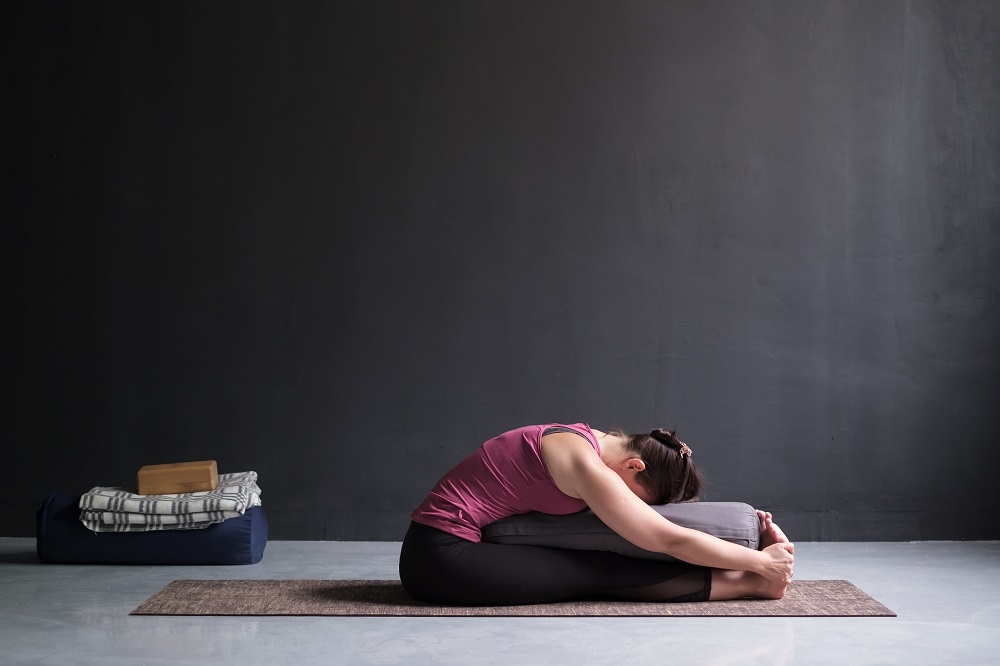Yin Yoga
Have you tried Yin Yoga? If you’re tired, perhaps struggling to manage stress or anxiety, craving energy, or perhaps overstimulated with a busy mind, it might just be the answer. Yin Yoga is the gentle side of a yoga practice, passive with supported postures and targeting the deeper connective tissues: ligaments, joints and fascia. Resting between postures to feel the Rebound allows us to return to our centre, our balance and find the inner stillness that is available to us all.
-
Wed 23 Jul
- $135.00 incl. GST
Sessions
Session 1
Wed 23 Jul 18:30 - Wed 23 Jul 20:00At Selwyn College, Auckland.Session 2
Wed 30 Jul 18:30 - Wed 30 Jul 20:00At Selwyn College, Auckland.Session 3
Wed 06 Aug 18:30 - Wed 06 Aug 20:00At Selwyn College, Auckland.Session 4
Wed 13 Aug 18:30 - Wed 13 Aug 20:00At Selwyn College, Auckland.Session 5
Wed 20 Aug 18:30 - Wed 20 Aug 20:00At Selwyn College, Auckland.Session 6
Wed 27 Aug 18:30 - Wed 27 Aug 20:00At Selwyn College, Auckland.Session 7
Wed 03 Sep 18:30 - Wed 03 Sep 20:00At Selwyn College, Auckland.Session 8
Wed 10 Sep 18:30 - Wed 10 Sep 20:00At Selwyn College, Auckland.Please note there is NO refund or transfer if you cancel less than 5 working days in advance of a class starting. Our refund policy can be read in full here. -
Wed 08 Oct
- $135.00 incl. GST
Sessions
Session 1
Wed 08 Oct 18:30 - Wed 08 Oct 20:00At Selwyn College, Auckland.Session 2
Wed 15 Oct 18:30 - Wed 15 Oct 20:00At Selwyn College, Auckland.Session 3
Wed 22 Oct 18:30 - Wed 22 Oct 20:00At Selwyn College, Auckland.Session 4
Wed 29 Oct 18:30 - Wed 29 Oct 20:00At Selwyn College, Auckland.Session 5
Wed 05 Nov 18:30 - Wed 05 Nov 20:00At Selwyn College, Auckland.Session 6
Wed 12 Nov 18:30 - Wed 12 Nov 20:00At Selwyn College, Auckland.Session 7
Wed 19 Nov 18:30 - Wed 19 Nov 20:00At Selwyn College, Auckland.Session 8
Wed 26 Nov 18:30 - Wed 26 Nov 20:00At Selwyn College, Auckland.Please note there is NO refund or transfer if you cancel less than 5 working days in advance of a class starting. Our refund policy can be read in full here.
Description
Like many forms of yoga, Yin works physically, emotionally, mentally and spiritually. Physically, Yin works on the deeper tissues. Over time it can allow for a greater degree of flexibility and mobility because different Yin Yoga postures stimulate and remove blockages in the myo-fascial tissues. This has the effect of balancing the body’s internal organs and systems when we relax the muscles around the connective tissue. Emotionally and mentally: becoming still in a posture and staying for a while, creates a gap where we can witness the physical responses in the body which not only includes any physical tensions but also emotions and mental states too as these also manifest in the physical. At the end of each posture, lying in stillness we have the opportunity to let go of any and all tensions that maybe arising. This is the Rebound, letting go, recalibration, to allow a new manifestation!
Benefits of a regular Yin Yoga practice
- Calms a busy thinking mind
- Allows deep relaxation of the body
- Reduces stress and anxiety
- Increases circulation
- Improves flexibility
- Releases fascia tensions and improves the sol-gel balance
- Improves joint mobility
- Balances the internal organs
- Improves the flow of energy in the body
What to expect
Yin Yoga is usually practised sitting or lying on the floor. Each student brings their current mind and body to the class and works to their own level. To accommodate different levels of flexibility, limbs are supported in the poses with cushions and blocks. Poses are held for three to five minutes and are followed by a Rebound pose. The class is peaceful.
Who should attend
Yin Yoga is suitable for those brand new to yoga and offers a great way to start a yoga practice that can branch out in many directions. Yin Yoga is also suitable for experienced yoga practitioners looking for a different approach. Athletes also find Yin Yoga is a helpful counterpoint to more vigorous exercise (yang) and can help remedy imbalances created by repetitive movements.
What to bring
Bring a yoga mat / towel / blanket to lie on, a cushion, a light rug or warm layer for the relaxation segment. If you have blocks and a strap, bring these. The tutor will also have some props on hand and will give advice on props to use at home. Wear comfortable clothing that allows movement. It is important to drink plenty of water to flush your system afterward, so bring a water bottle to class.

Prerequisites
This style of yoga is quite different to other forms of yoga as you will be holding poses for minutes at a time. Do not expect to work up a sweat or build muscle, but you more than likely will leave the class feeling more relaxed than when you arrived.

